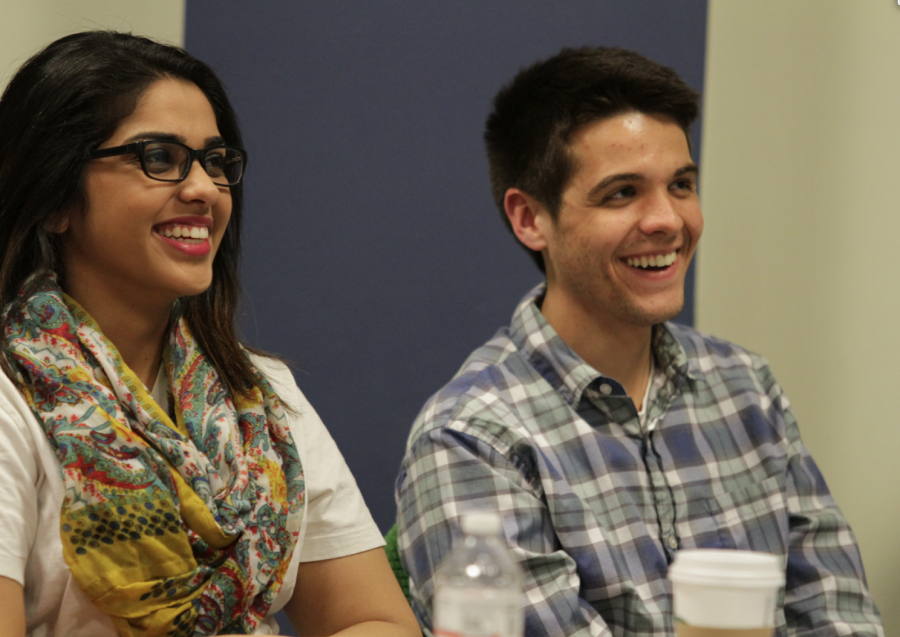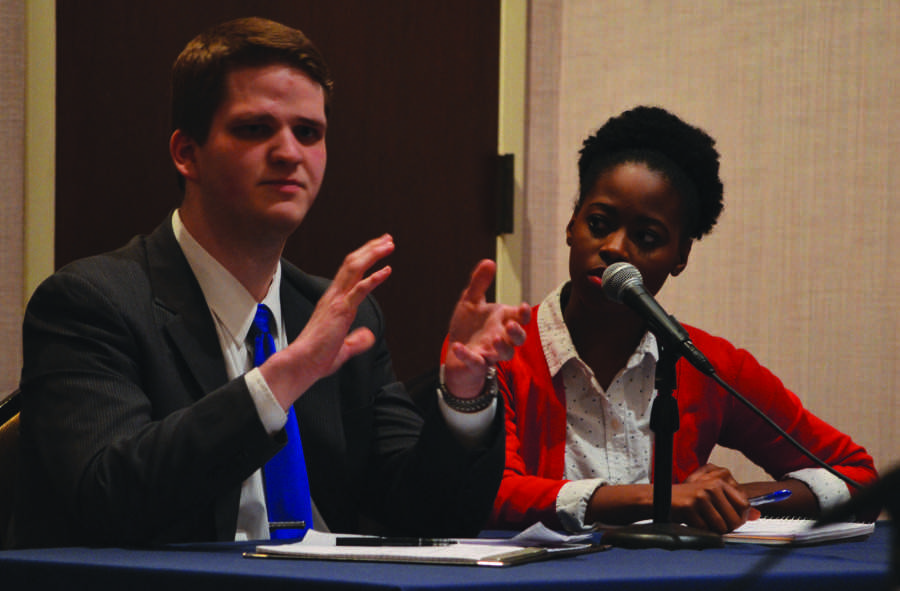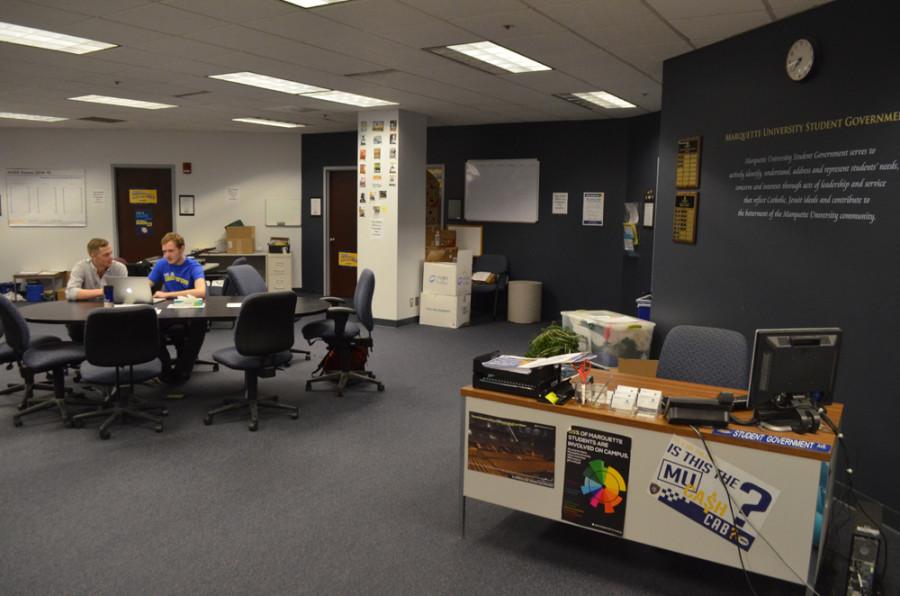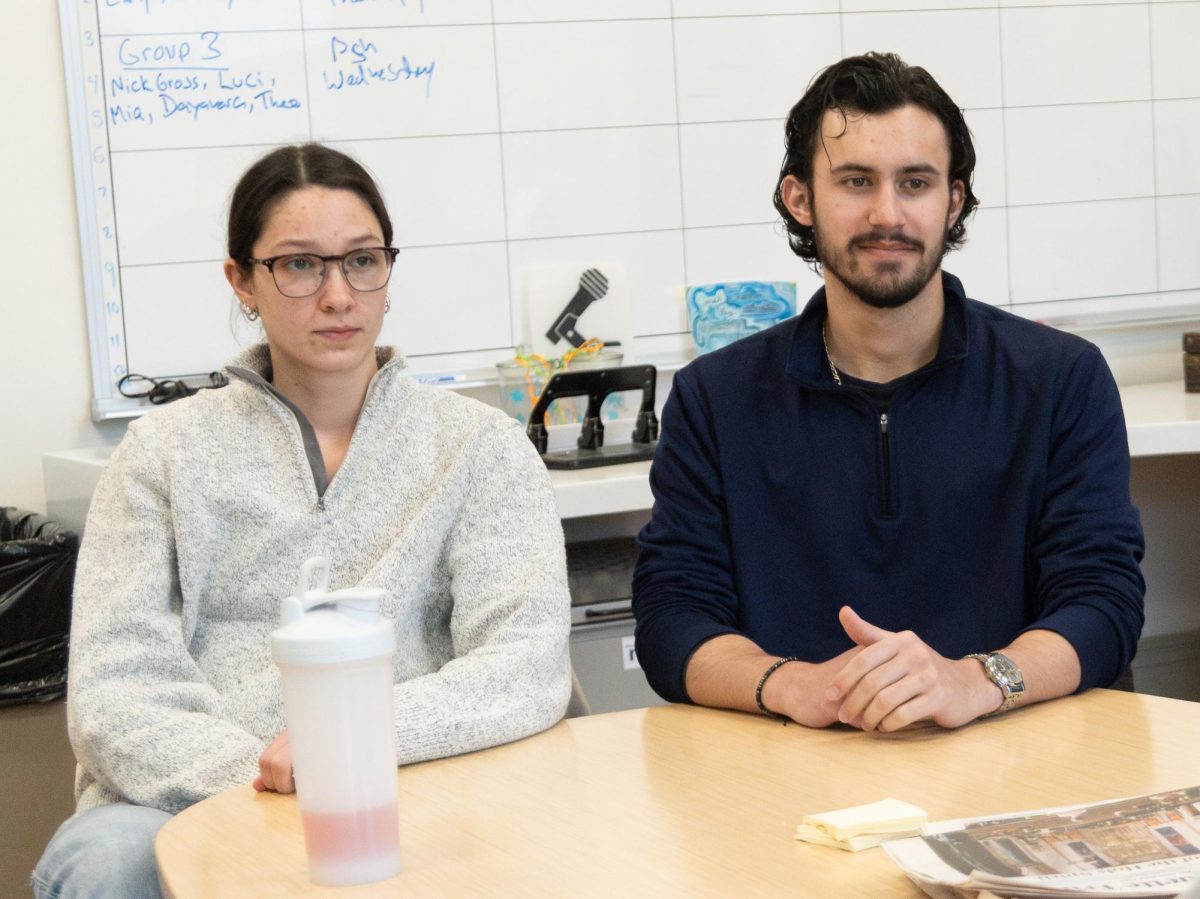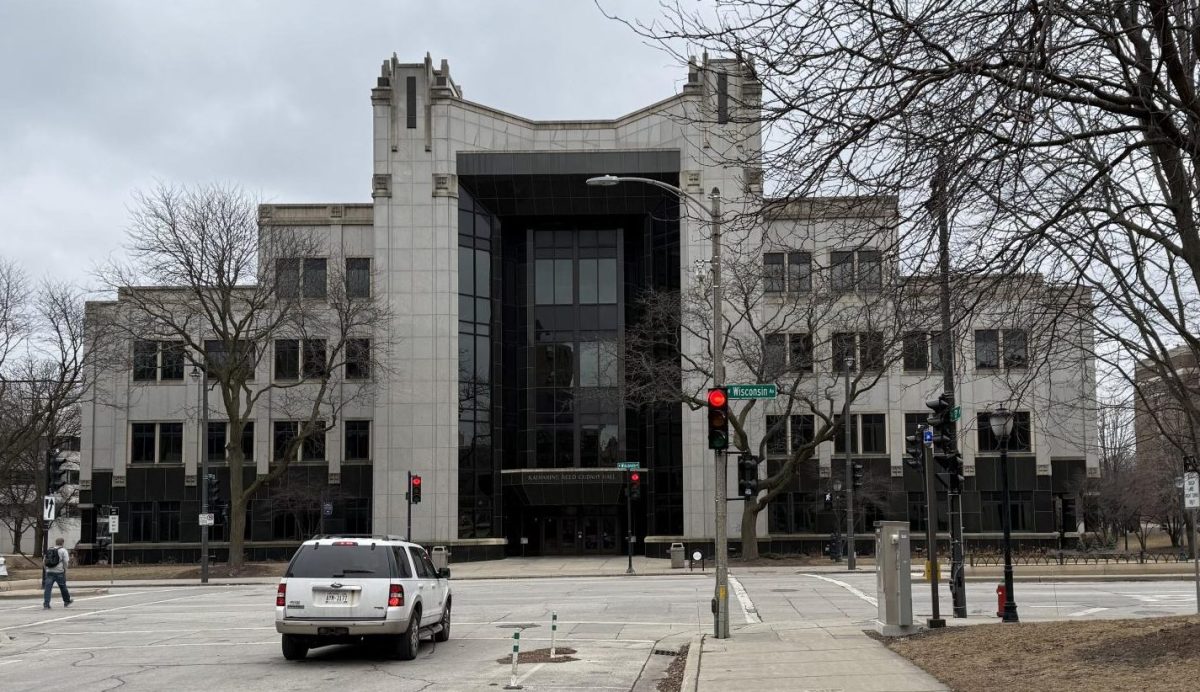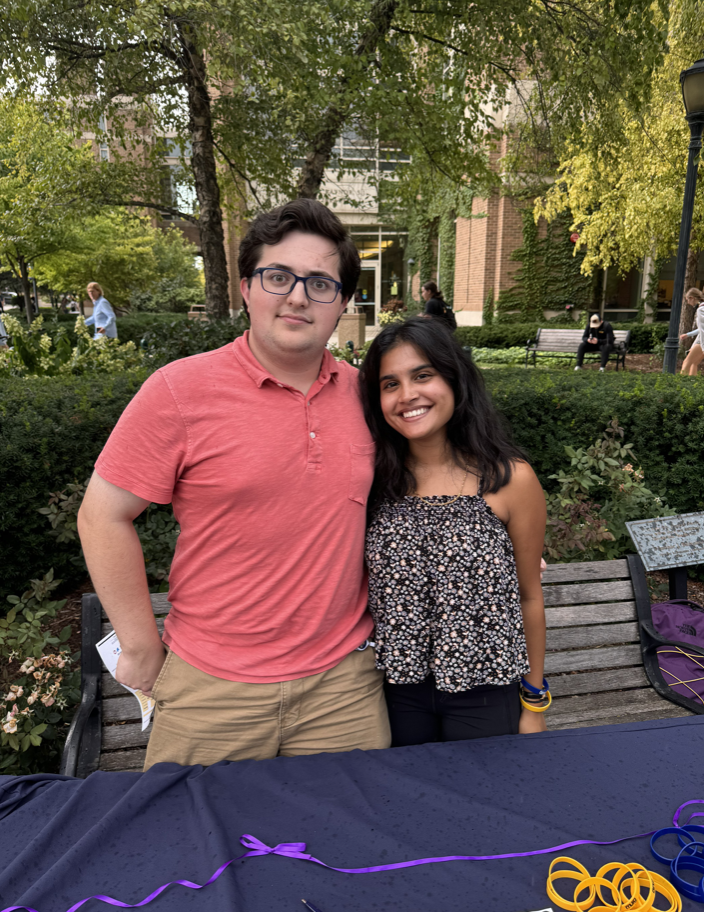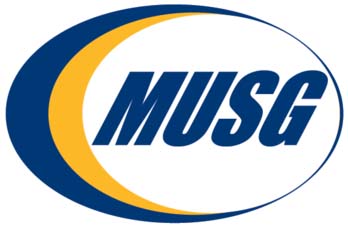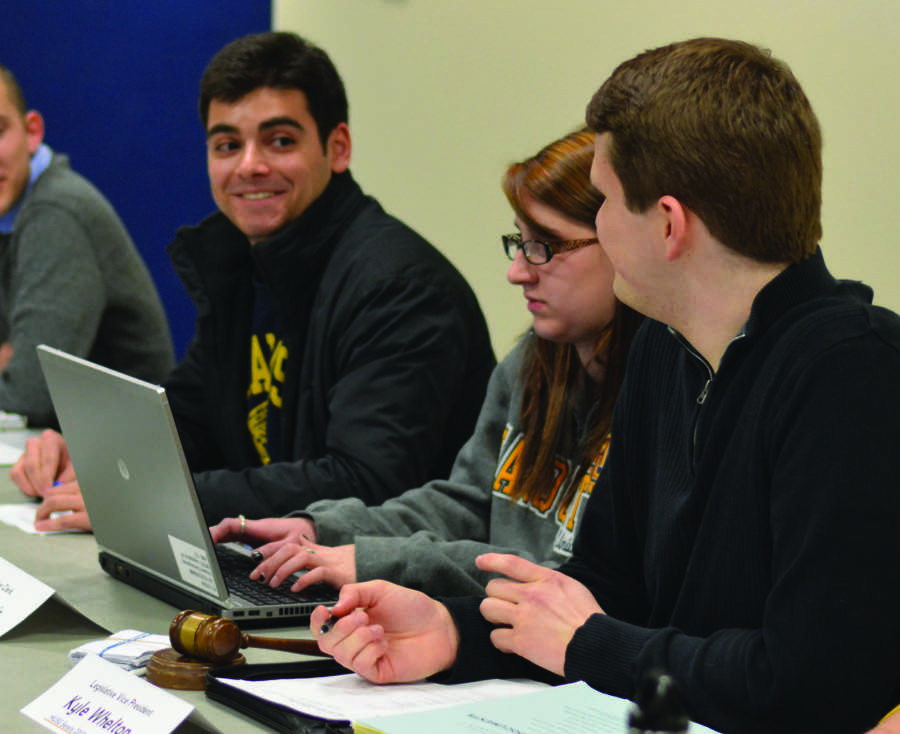 The role of the Marquette Student Government president is to serve as the primary student representative to the school administration. This year, that role will be filled by Sam Schultz, a senior in the College of Arts & Sciences, and a three-year veteran of MUSG.
The role of the Marquette Student Government president is to serve as the primary student representative to the school administration. This year, that role will be filled by Sam Schultz, a senior in the College of Arts & Sciences, and a three-year veteran of MUSG.
As president, Schultz is expected to be a leader of MUSG. Legislative Vice President Kyle Whelton, a junior in the College of Arts & Sciences, said the president needs to be at the forefront of MUSG’s advocacy mission, and that he needs to be able to “speak frankly” with school administrators. He also believes that Schultz is well suited for the role.
“Sam has got an extremely cool head, which I think is by far his biggest asset,” Whelton said.
Although Schultz is the elected leader of the organization, he views the leadership role as a collective effort between all the members of the MUSG Executive Board. The group is made up of Schultz and his five vice presidents.
Zach Bowman, a junior in the College of Arts & Sciences, and Whelton are the two vice presidents with the most prominent roles in MUSG. The MUSG Senate elected Whelton LVP last April. Although Whelton had only served in the senate one year, Schultz said he garnered respect from his colleagues as one of the most professional and organized senators in MUSG.
“Kyle was definitely a leader on senate,” Schultz said.
As LVP, Whelton is responsible for running the weekly senate meetings.
As Executive Vice President, Bowman is responsible for hiring all MUSG office staff and supervising elections. He also chairs the Student Organization Funding Committee. Schultz views him as a collaborator.
“I definitely view Zach as a partner in pushing our agenda,” Schultz said. “He’s been in senate a long time and he’s definitely passionate about a lot of the things that I am.”
The most important issue for Schultz this year is academic advising reform. Schultz served two years as chair of the Academics Committee where he developed a passion for academic issues. During his campaign for president, Schultz made it clear that advising reform would be one of his goals.
Schultz said he thinks true advising reform needs to come from two directions. Students need to show up and be prepared for the meetings so that “higher level advising” can happen, and advisers also need to be trained for their role in guiding students, he said.
“It’s my opinion that if Marquette is going to claim that advising is a large part of the academic experience, then professors should be properly trained and they should also be evaluated, which they currently aren’t,” Schultz said.
Schultz, and by extension MUSG, has no explicit power over the issue. The ability of Schultz and MUSG to get reform depends on their ability to convince the university that reform is needed.
“We can’t force them to do anything,” Bowman said.


